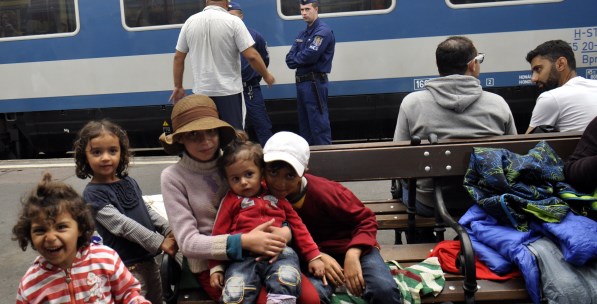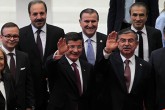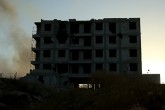At the center of Peace Park in Hiroshima there is a monument erected to commemorate the child victims of World War II. The structure memorializes, in particular, Sadako Sasaki, a victim of the atomic bombing of Hiroshima. Sasaki was only two years old when the bombing took place – the same age as Aylan Kurdi. A few years later she started to develop cancer because of the radioactive fallout that she was exposed to and died as result of what at that time many called “atom bomb disease.” Sasaki was one of the millions of child victims of World War II. Later the atomic bomb and Hiroshima were mostly remembered by this little victim of it.
Nazım Hikmet, a prominent poet from Turkey, wrote a poem to remember her and the other child victims:
“I’m only seven though I died / In Hiroshima long ago / I’m seven now as I was then / When children die they do not grow
…
“All that I need is that for peace / You fight today you fight today / So that the children of this world / Can live and grow and laugh and play.”
However, this did not stop the atrocities that children face in different parts of the world. Children continued to be the most vulnerable victims of wars and conflicts around the world. A few decades after Hiroshima, in a deadly conflict in Vietnam, another little girl became the face of the pain and suffering of little bodies in conflict. One of the most memorable photos of the Vietnam War was the picture of Phan Thi Kim Phuc, who was seriously wounded by a napalm bomb when a photo was taken of her running and crying. The photograph later became a symbol for the anti-war movement around the world.
Since then, the world has witnessed various atrocities. We saw the most effective killing machines of recent history in action in Rwanda, and while there were many signs and evidence of genocide, the international community and major powers preferred to look the other way. A similar ethnic cleansing took place in Bosnia, and up until the coverage of the market place bombing on live TV, again many preferred to look the other way and ignored the humanitarian disaster and genocide. These conflicts were called “problems from hell” and avoiding them was considered bliss.
“NEVER AGAIN”, RHETORIC AGAIN
There were always similar forms of ceremonial commemoration following these atrocities. After the deaths of hundreds of thousands there are usually overdue apologies by those nations that did not do enough to stop these crimes. “Never again” became a phrase that speechwriters for leaders of these nations used most frequently in anniversary speeches. Everybody pretends to understand the heinousness of these crimes and the unacceptability of tolerating them. However, every time history repeats itself. In the last few decades, again and again the silence of the international community and their disinterest in these crimes and atrocities emboldens dictators around the world. As these dictators became more arrogant and daring, more children died in wars and conflicts.
In the last two weeks, two pictures about the Syrian conflict have generated international outrage. The picture of a Syrian refugee father selling pens, while carrying his sleeping daughter resulted in a major campaign for him in social media and demonstrated the plight of these refugees in different countries. A second and more shocking image was the photo of a drowned toddler on a beach. It was the child of one of the millions of Syrian refugees who try to flee from the conflict in Syria. The picture was on the front page of major news outlets, and in social media the name of the drowned kid became a trend topic. It was one of the saddest moments of the conflict in Syria for outsiders, but it was nothing new for Syrians.
For the last four years, hundreds of thousands of Syrians have died from heavy bombing, diseases in camps or drowning in the Mediterranean Sea while trying to save themselves and find a safer place to live. Two years ago, when the regime used chemical weapons in Ghouta, dozens of chil



